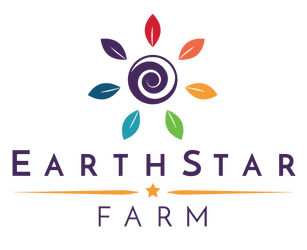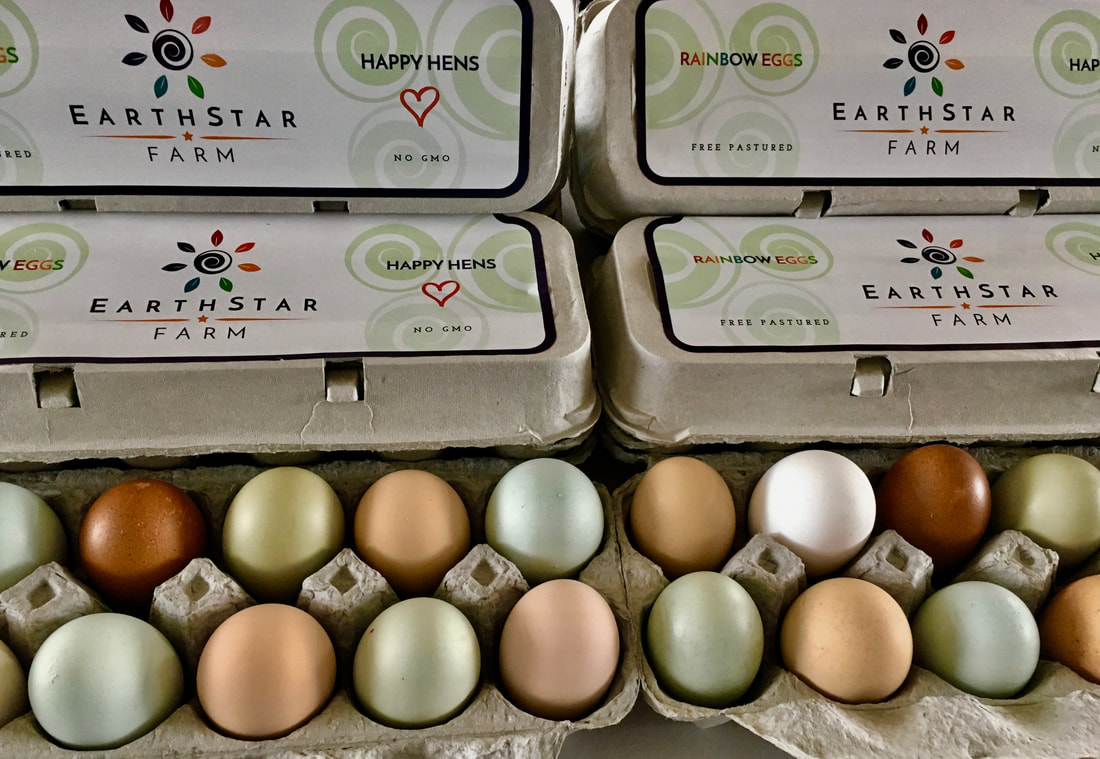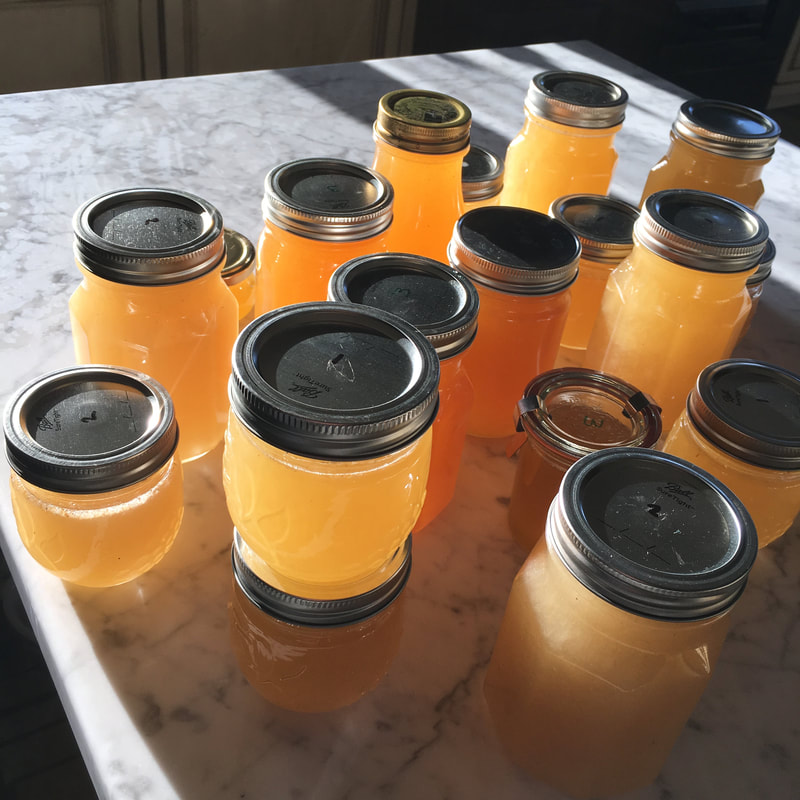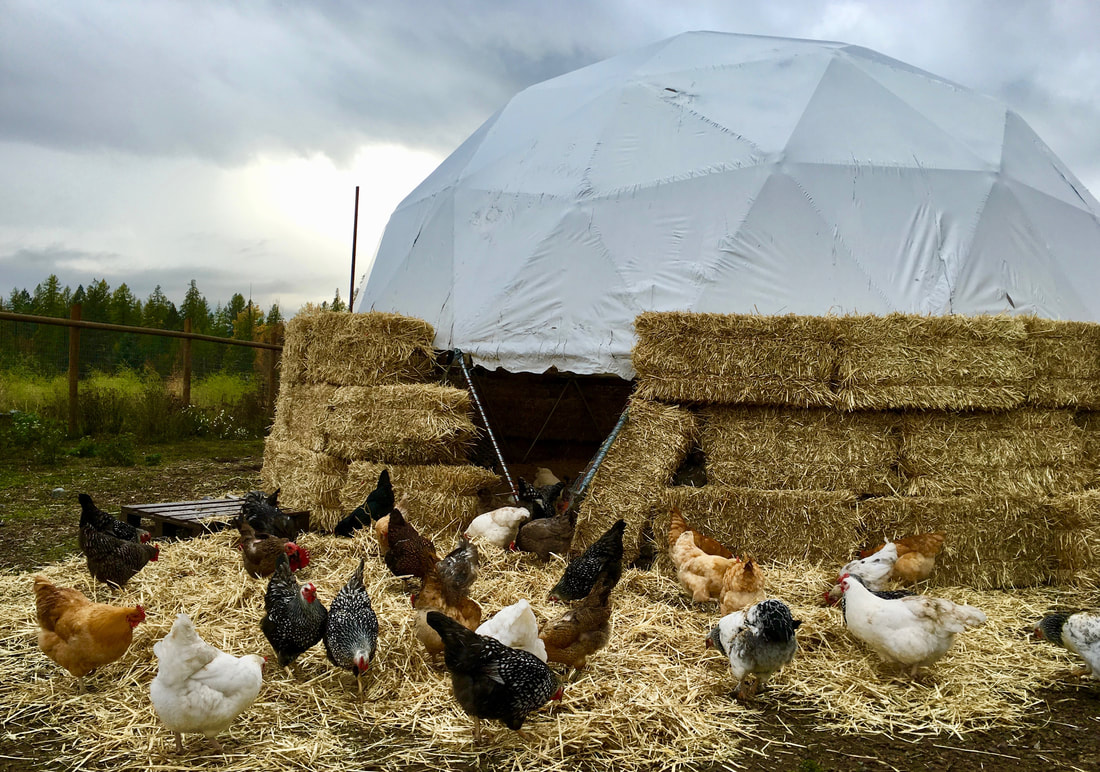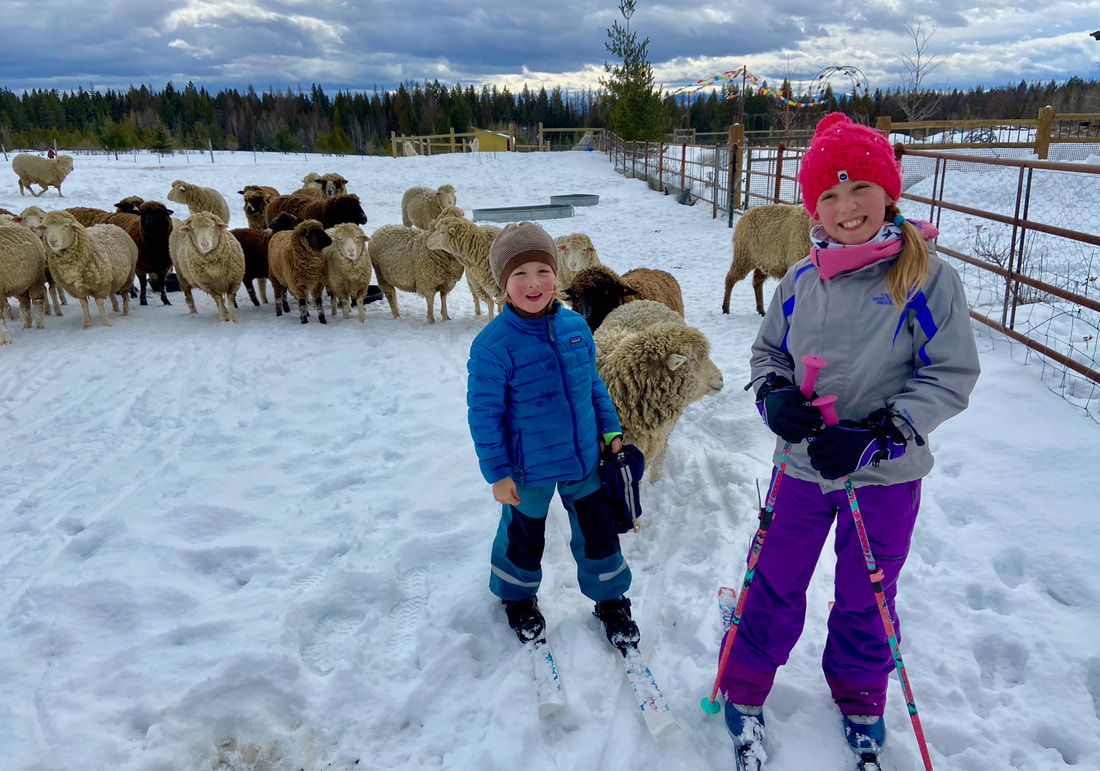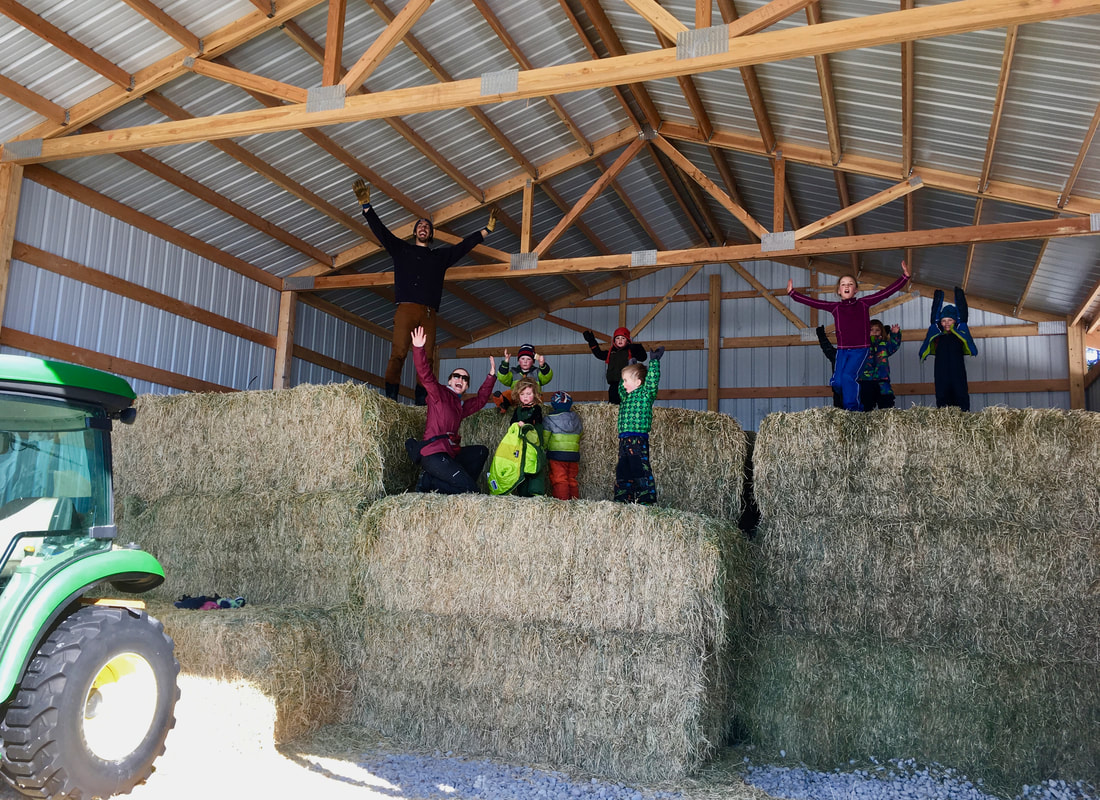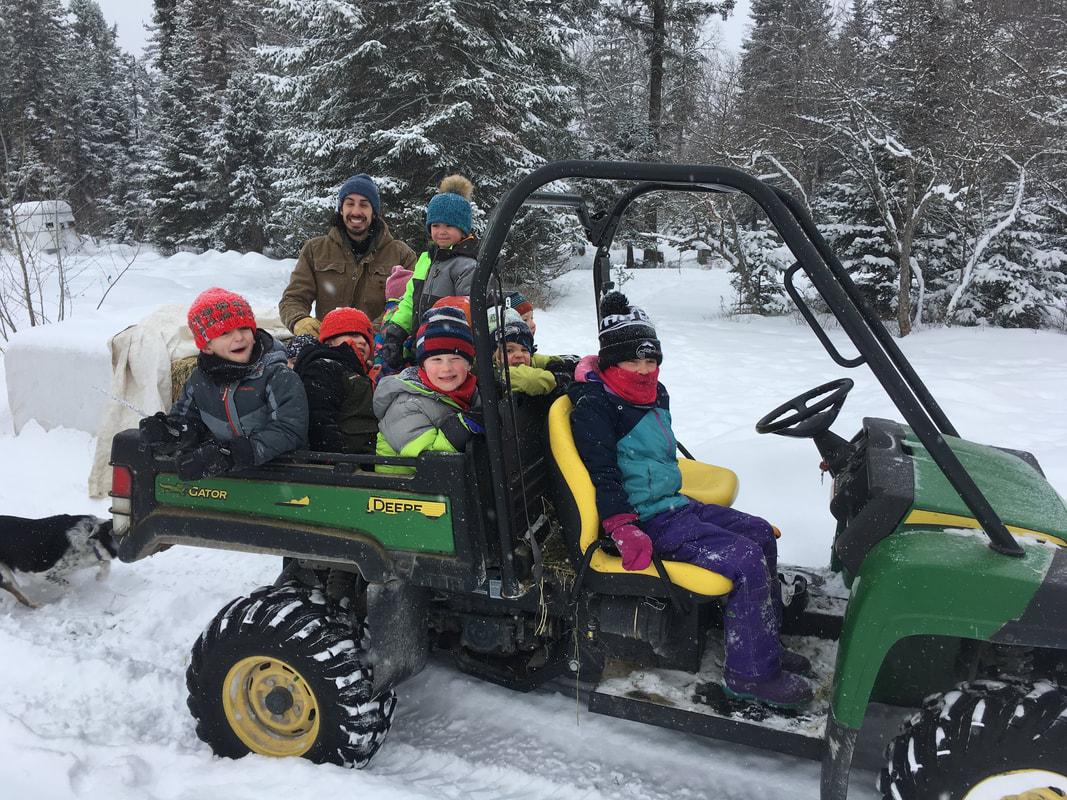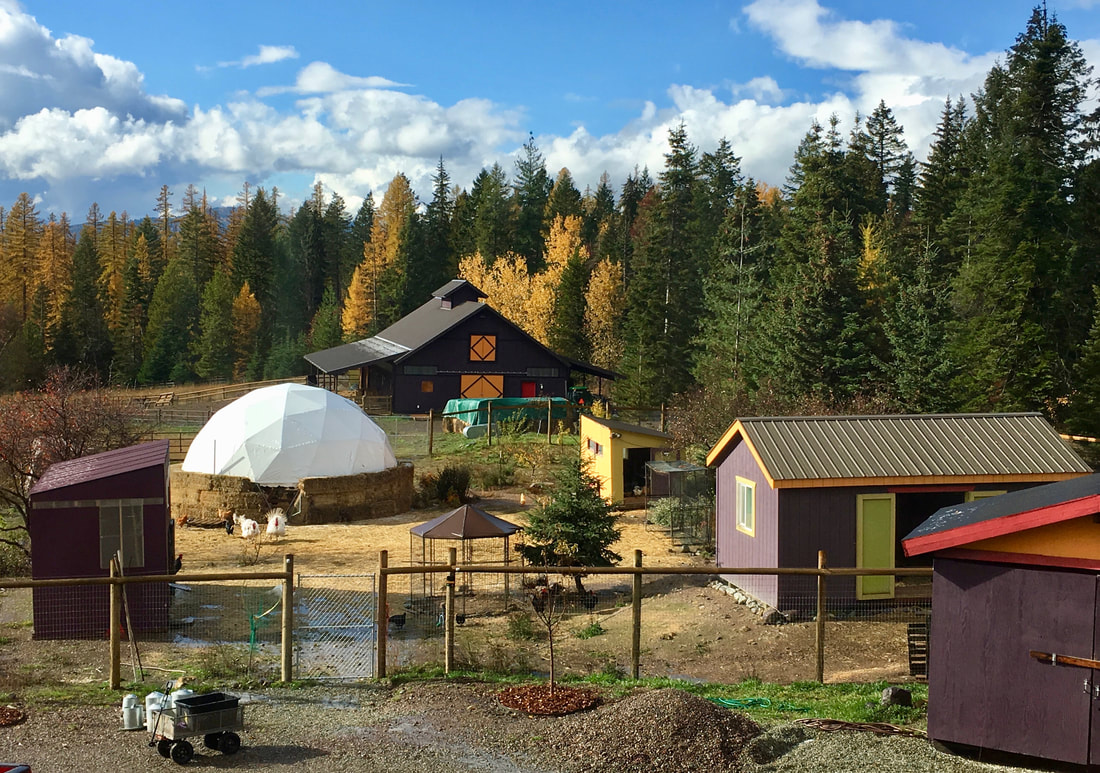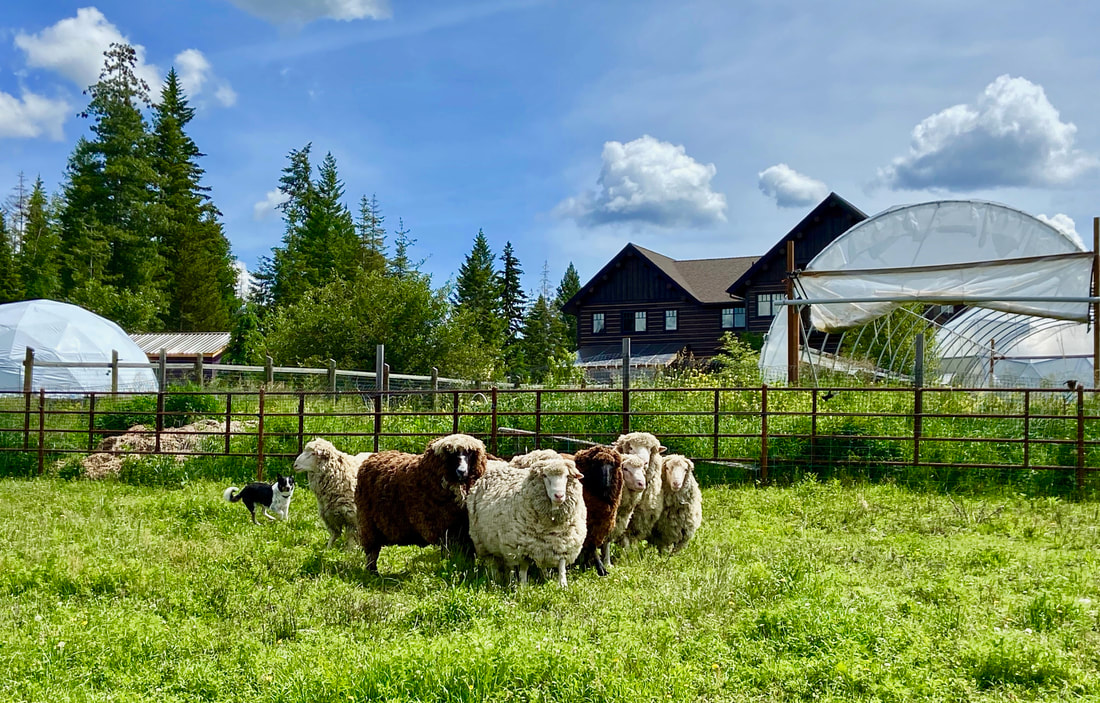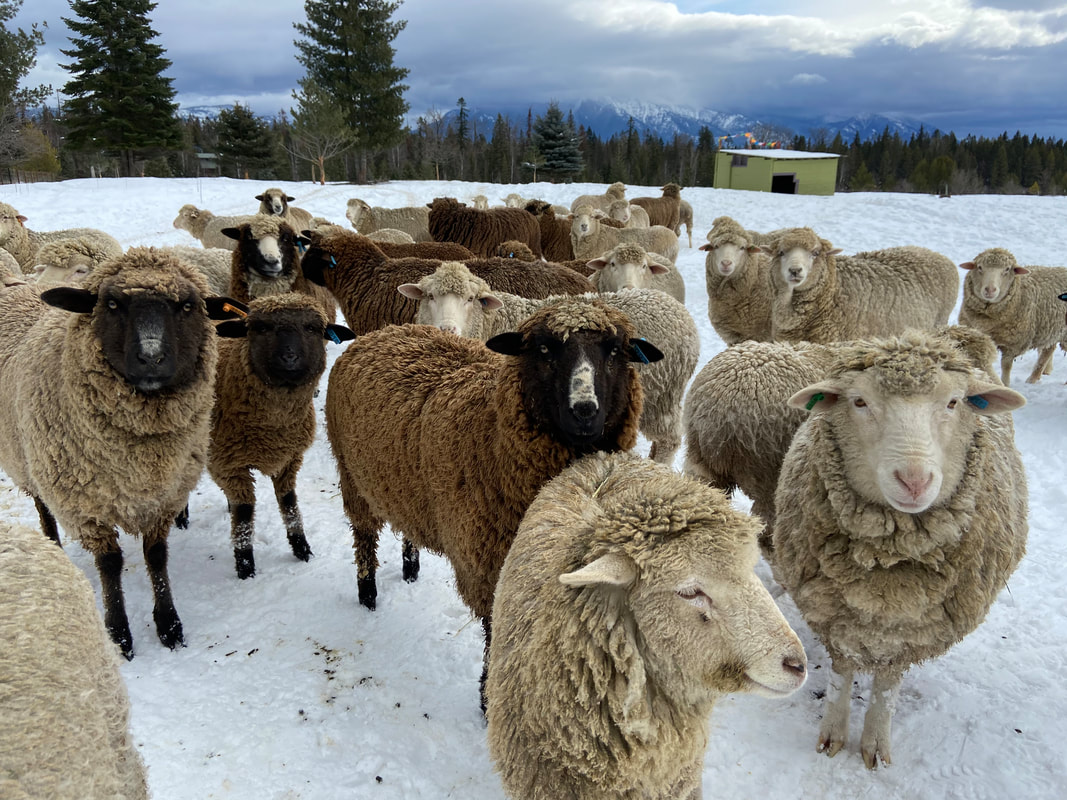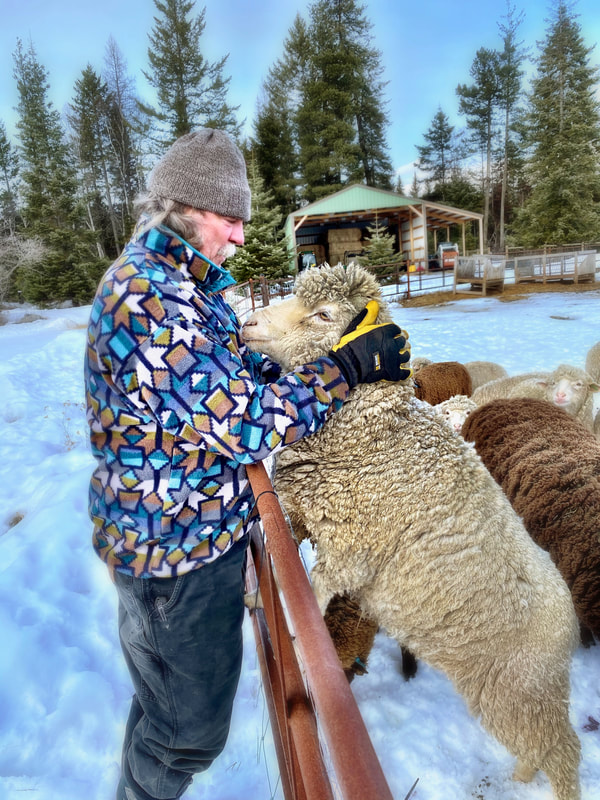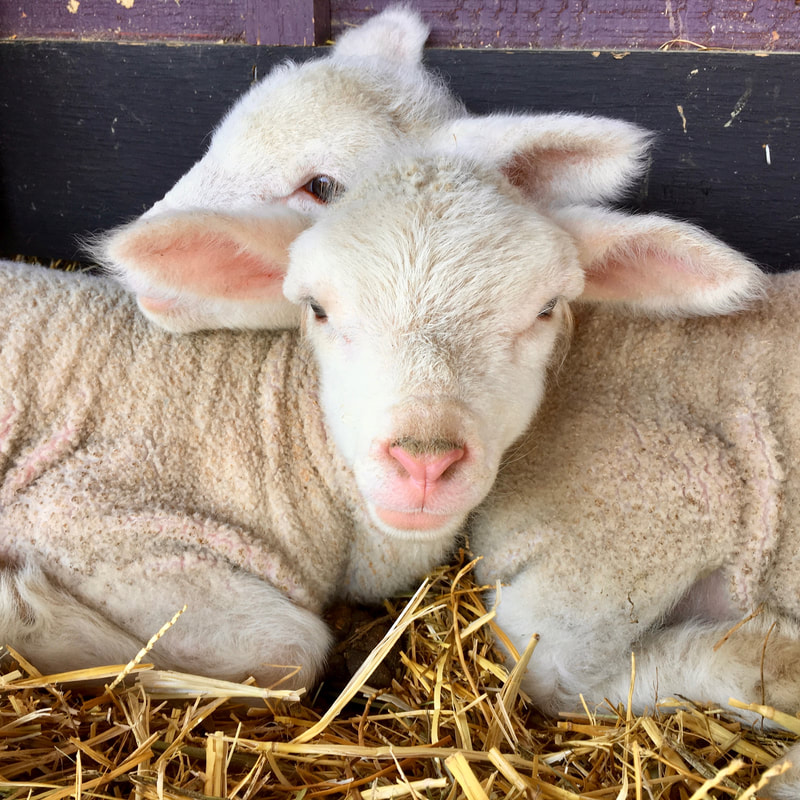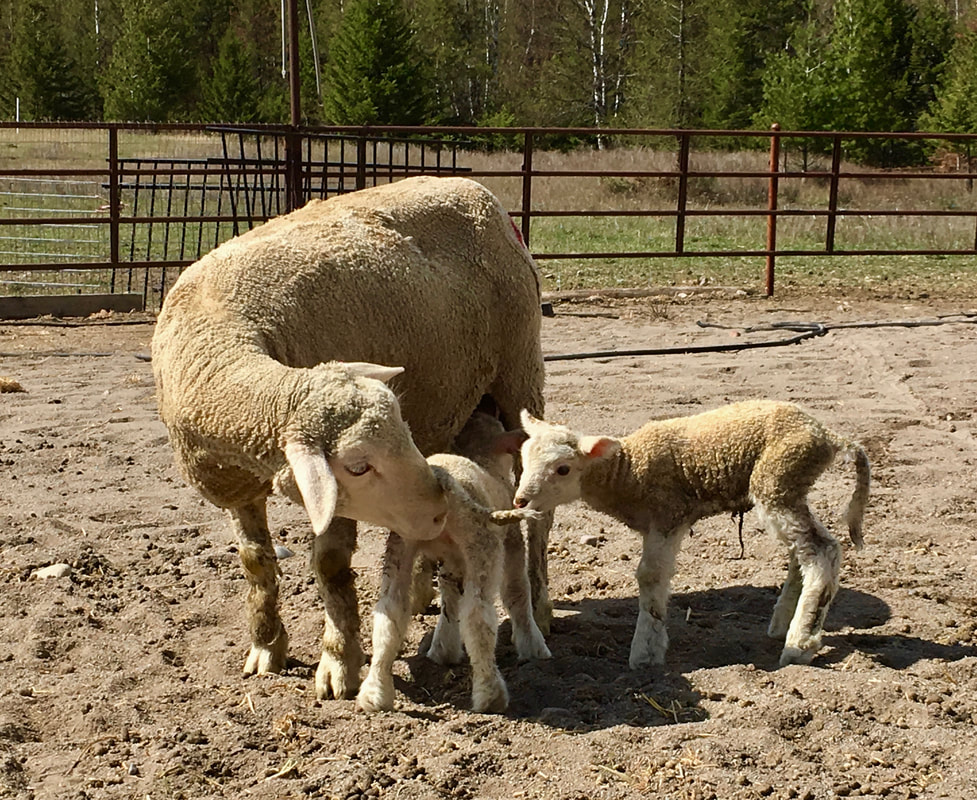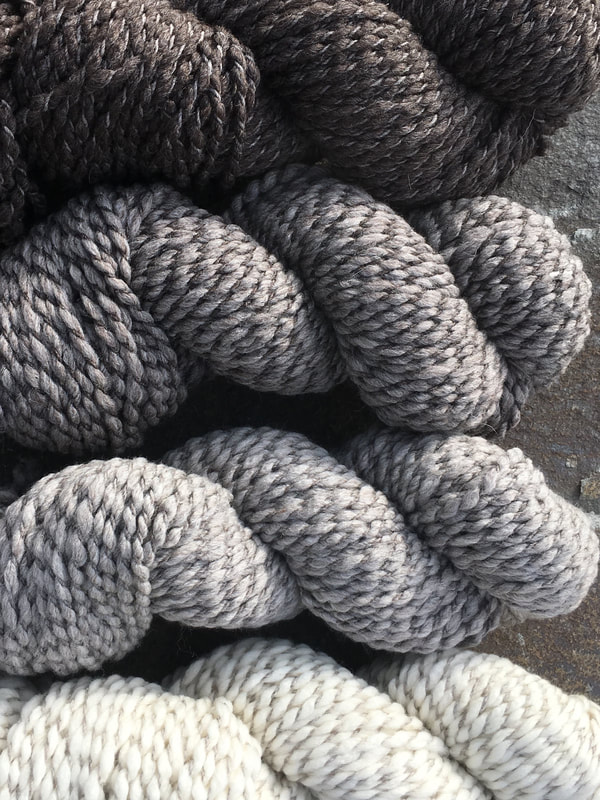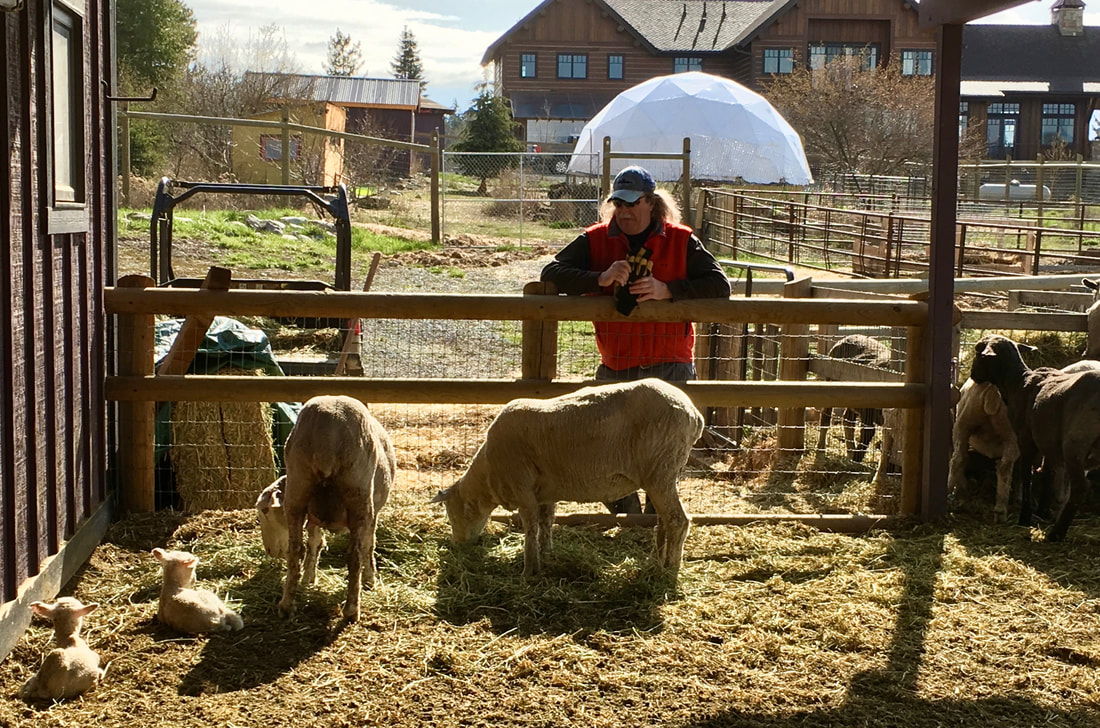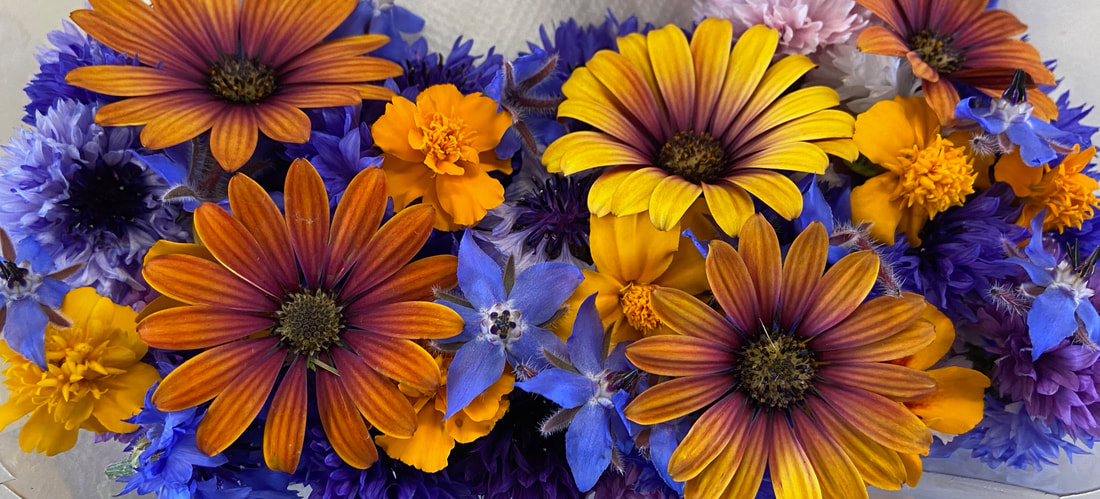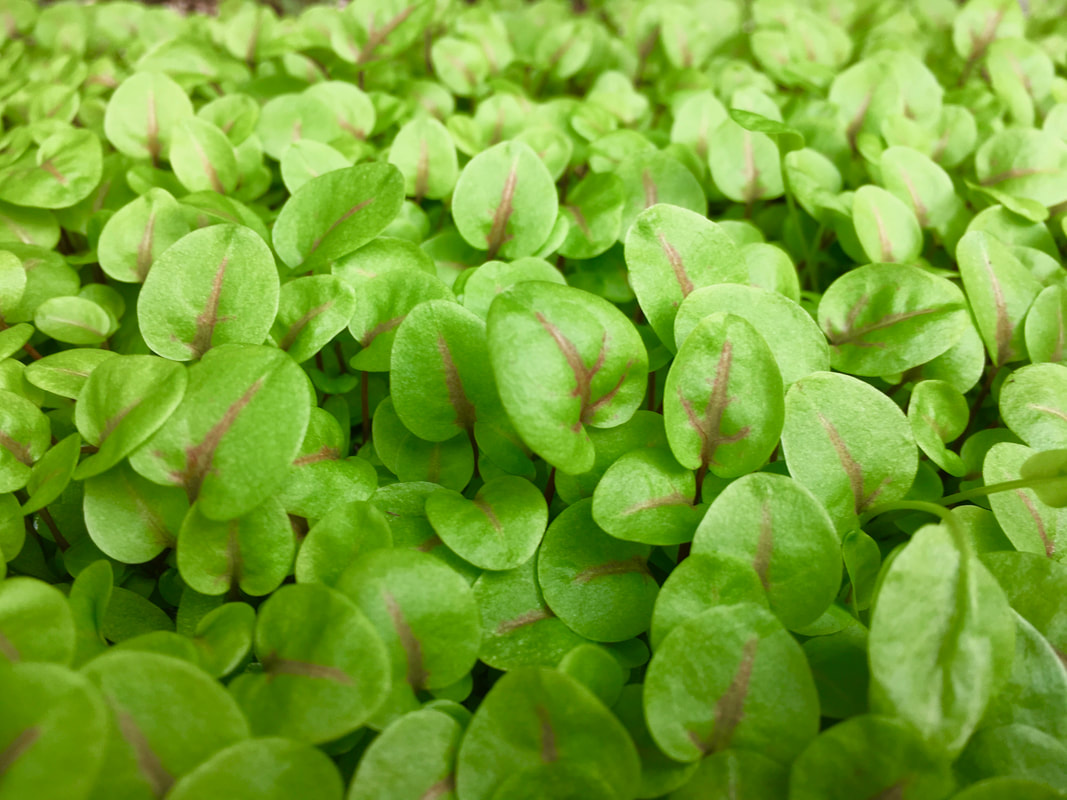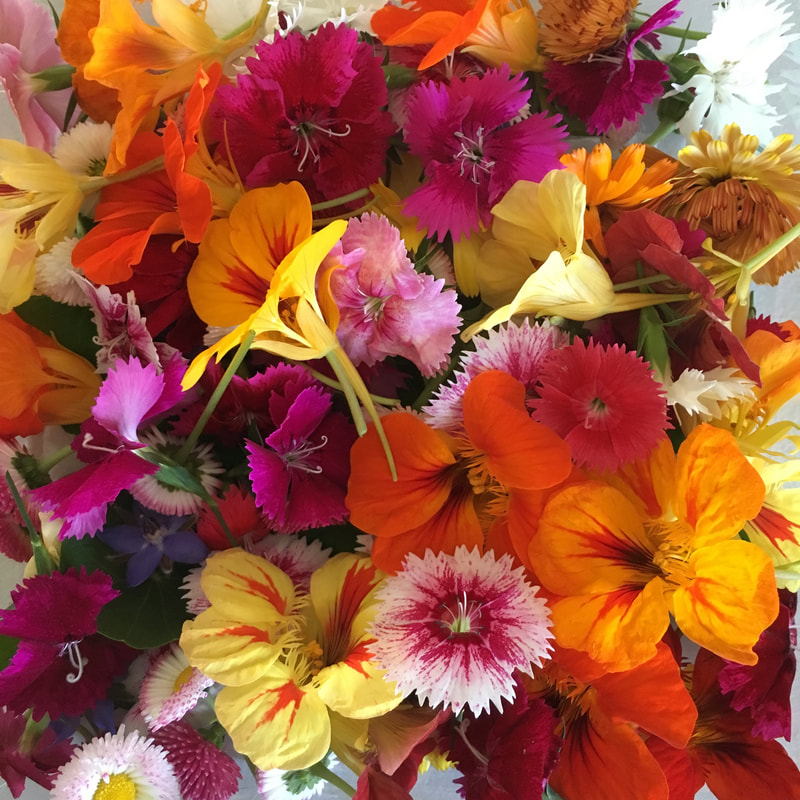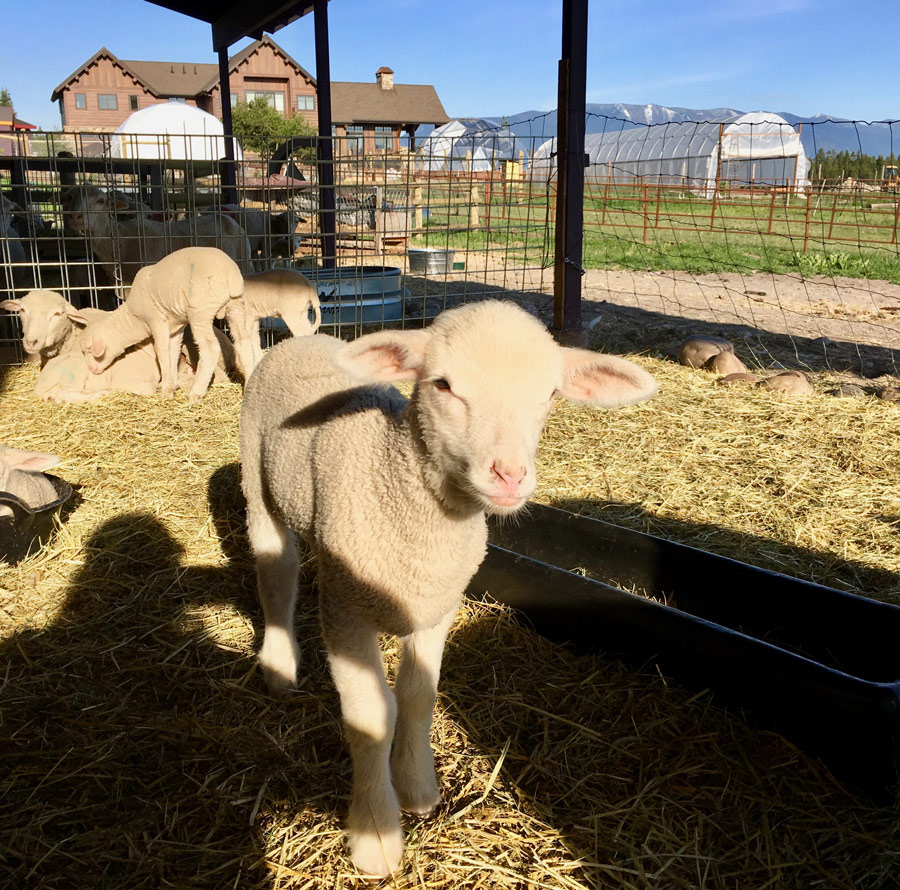why are your eggs so many different colors and sizes?Our EarthStar Farm flock of Happy Hens that lay Rainbow Eggs are an integrated flock of about 12 different heritage breeds of chickens. Each breed was selected to create a balanced and beautiful blend of colors in each EarthStar Farm egg carton. Each breed lays a slightly (or dramatically) different egg color: white, ivory, buff, mid-brown, dark chocolate brown, olive, yellow-green, light aqua, pale blue, cerulean. The eggs range in size from Jumbo to medium, with most eggs falling into the large or extra-large USDA size grading. Fun fact: all brown eggs have their color applied by the hen in her oviduct during her daily laying process, and will be white on the inside. Only the blue/green/olive Araucana/Ameraucana eggs have fully pigmented shells where the outer color is also visible on the inside of the eggshell.
|
Do you have honeybees? Yes, we do have several hives of honeybees on EarthStar Farm. The hives are kept safely within the Food Forest bear fence, so they can do their important work without worries. They work hard for about 6-7 months of the year, then take a long sleep during the long cold Montana winters. We share the honey they make with the hive colony, leaving most to them for their upcoming generations. As our honeybee colonies get stronger each year, we may reach the point where we can share the delicious EarthStar Honey with you all. We also are working on group housing for our pollinator bees, the unsung heroes of the garden!
|
what does heritage chicken breed mean?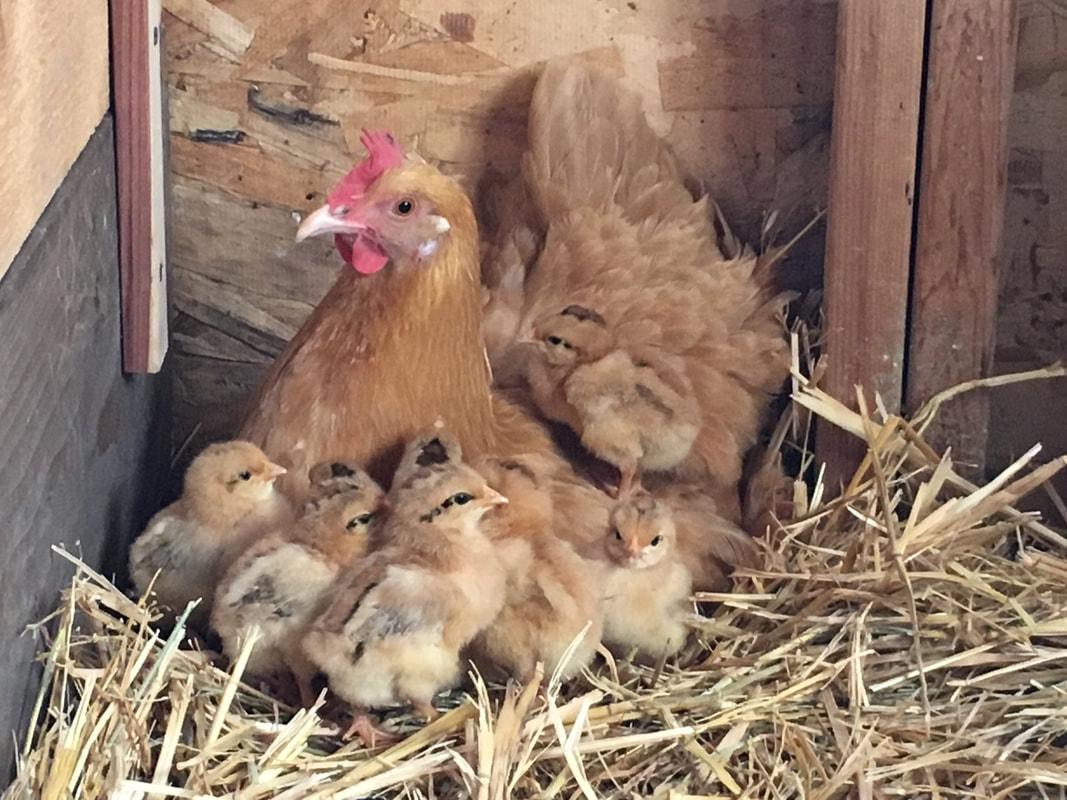
Heritage chicken breeds are the older, less common breeds that were almost lost to farming in the last century, due to intense mono-breed factory farms. The few breeds generally selected for American factory farming post-WWII were the breeds who laid the greatest amount of white eggs in their short lifetimes. After two years of intensive and confined factory laying, these poor hens were ruthlessly disposed of. Thanks to small farms across the world who value their old traditional farmhouse breeds, and the modern hatcheries that have also worked hard to keep a broad genetic selection of birds, these wonderful colorful chickens are still with us. Yes, we also have roosters, of several different breeds. Our roosters are wonderful gentle fellows who look after their hens diligently while protecting them fiercely from predators. One should presume that all our EarthStar Farm eggs are fertilized. We also have our own EarthStar naturally evolved genetic-mutt chickens in our flocks as a result. We have deep gratitude towards our hens and the delicious eggs they generously lay for us, so our older hens are allowed to gracefully retire on the farm and live out their days with their flock family.
|
Foxtail Forskola--an outdoor preschool in the winter?We are proud and delighted to host the wonderful "little foxes" of Foxtail Forskola, and their dedicated kind teachers. They gather here year-round 4 days a week (rain, snow, or shine) to learn, share, play, observe, create and dream in the woods and pastures of EarthStar Farm. Sometimes they even get to pitch in and help with farm chores by feeding the sheep, collecting eggs, watering flowers, turning the composted dirt pile, etc. The Foxtail Forskola program is designed for 3-6-year-olds. For more information, please contact Kayla Nichols at www.foxtailforskola.com
|
What breeds of sheep do you have and why?We are breeding our sheep for extra-fine super-soft wool, as well as color. EarthStar Farm's flock are mostly Cormo sheep, but we have a few beloved Targhee sheep from our very first sheep flock.
We began our ruminant flocks with some rescued Nigerian dwarf goats in 2012. They were adorable but full of mischief and multiplied exponentially, so we quickly shifted away from goats and brought in Targhee and Cormo sheep in 2013. Cormo sheep originated in Tasmania in the 1960s and were brought to America in the 1980s by a mother & daughter rancher-team at Running Wild Ranch in Broadus, MT. Cormos are smaller sheep with incredibly soft fine-micron fleece and sweet pretty faces. They derive from Saxon Merino x Corriedale crossbreeding. Targhees are a uniquely American breed of sheep, locally bred by Basque shepherds and the USDA in the 1920s in the high mountains of the Targhee Forest in Idaho. at Dubois Sheep Station. Parentage is Rambouillet (French Merino) x Corriedale x Columbia. They are a larger sturdy breed, very friendly with lovely faces and are known as a multi-purpose breed, raised for both delicious meat and quite fine woolen fleece. |
Do you have a CSA program?We do not have a CSA program at EarthStar Farm. We do our very best to raise and grow the healthiest produce and food. We feel strongly that to commit ourselves to a weekly CSA (Community Supported Agriculture) box would not serve our farm family's best interest. There is a lot of stress involved in promising a weekly big box of edible produce to customers. We prefer to let our land, people, and livestock speak for themselves about when our produce is ready and ripe to share with community.
CAN WE BUY DIRECTLY FROM YOUR FARM? No, we prefer to support our local vendors and grocery stores. We respectfully request you buy our produce and yarns from our fine partners. Our EarthStar Rainbow eggs are exclusively available at Third Street Market in Whitefish, MT. WHERE IS YOUR BOOTH AT WHITEFISH FARMERS MARKET? We are taking a few years off from hosting our EarthStar Farm produce booth at the Whitefish Farmer's Market for scheduling reasons, but hope to get back to the fun of Tuesday Market evenings soon. |
when do you shear and when do you lamb?We shear the sheep once a year, in early April, just before lambing season. Lambing is such a joyful time of year! We usually lamb throughout May and often into June. The whole process usually takes about 6-8 weeks of alertness, and there are always surprises on the timing. We often have extra fun of twins and triplets as well. Newborn lambs are simply divine, and bring great joy to the farm.
|
where is your wool processed?Our super-soft naturally colored un-dyed "EarthStar Naturals" range of yarns are mainly processed at Mountain Meadow Wool in Buffalo, WY. They wash, comb, and spin several refined weights of yarn for us. These "EarthStar Naturals" yarns are gorgeous un-dyed rich blends of our black, grey, and white woolen Cormo fleeces, spun into fabulous solids and tweeds. The range includes our baby-gentle "Cormo Sport," our all-star silky-springy "Cormo Worsted," and a lovely soft textured bulky yarn we call "Cloud Cormo," and featured in the photo above. We also process at Custom Woolen Mill in Carstairs, Alberta, CA. They create a marvelous homespun two-ply "Aran" yarn, as well as our single-ply "Bulky" that is perfect for Cowichan heritage knitting, the iconic chunky Pacific Northwest tribal yarn. All "EarthStar Naturals" yarns are available in multiple un-dyed colorways; from creamy ivory to warm espresso black, and many the silvery greys and tweeds in-between.
|
if you use organic farming practices on earthstar farm, how come your labels don't say organic?
We choose to farm naturally, in harmony with the earth, pure and simple. While we follow the USDA organic farming standards, our philosophy is that our natural non-chemical way of farming is REAL farming. We take issue with the USDA calling modern factory farming with deadly chemicals "conventional farming." By choosing not to align with the USDA "Organic" labeling processes, we are registering our protest against the deadly status quo of American factory chemical farming, which is NOT age-old natural farming at all.
Can we visit the farm?We love occasional visitors, but by appointment only, please. We are a very busy farm, especially during the spring and summer seasons. Email or call us to inquire about the feasibility of a tour. Please DO NOT bring your dog to visit our farm. Our EarthStar dogs are loyal guardians and hard-working team members, and they might misinterpret your dog's presence on the farm as an intruder. Thank you!
|
Copyright EarthStar Farm © 2017 • Built by WheelieCreative
